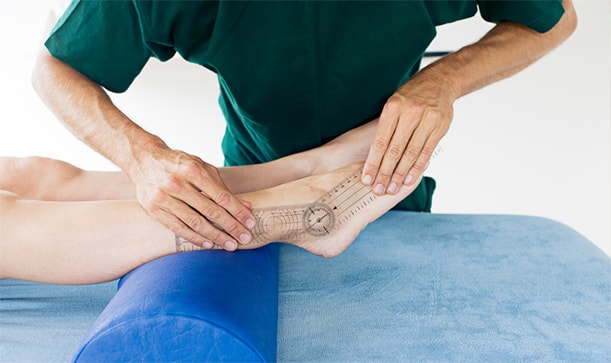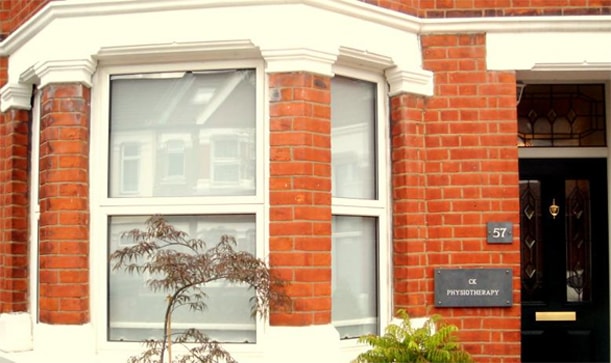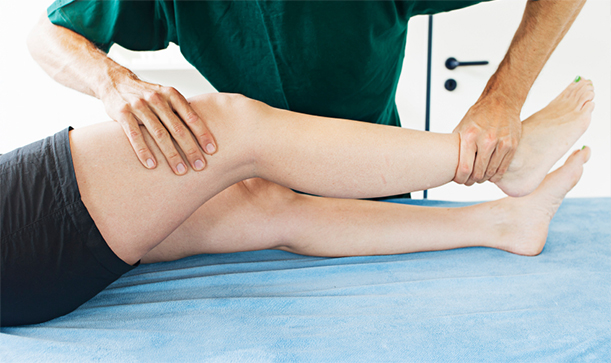CK Physiotherapy
AREAS COVERED
W7, W5, W13, Ealing, West London
57 Elthorne Avenue
Hanwell, W7 2JY
T: 020 8566 4113
M: 079 572 46185
E: info@ckphysio.co.uk
Location / Parking
We are situated in Hanwell, between Boston Manor Road and Northfields Avenue, south of the Uxbridge Road.57 Elthorne Avenue
Hanwell, W7 2JY
There are parking restrictions Mon - Fri 9-10am and 2-3pm. If you need a permit during this time please inform your therapist when you arrive. There are no parking restrictions at other times.
Opening Times
Please phone the number above during working hours to make an appointment. Our reception service will be happy to book your session.
London Underground / Bus Services
London Underground
10 min. walk from Boston Manor Tube Station.
15 min. walk from Northfields Tube Station.
Bus Service
E8, E3, E2, 207, 607, 83
Request Call Back
Our Blog
Plantar Fasciitis and FAQs for Shockwave Therapy Treatment
By: BryanKelly (Psst, View author in Google Plus) Date: Dec 22nd, 2020Before we get into the nitty-gritty of what Plantar Fasciitis is and the frequently asked questions about shockwave therapy, let’s get the difficult part out of the way, its pronunciation! Plantar Fasciitis (PLAN-tur fash-ee-eye-tis), is a difficult term to pronounce and can equally be a difficult condition to live with.
As always at CK Physio, we want to give you accurate information and assist you in making informed decisions as to the correct course of treatment. So let’s discover what Plantar Fasciitis is and the steps you can take in treating it.

What is Plantar Fasciitis?
Plantar Fasciitis is pain felt due to an inflammation of the plantar fascia, which is a fan-shaped tissue located at the bottom of your foot, connecting your heel bone to your toes. The plantar fascia helps to maintain the shape and form of the arch in your foot, so when this is strained or inflamed it causes plantar fasciitis to occur.
This leads to a feeling of tense muscles, tenderisation of the area and a sharp stabbing sensation within the affected foot. With gentle stretching and movement, the pain can sometimes lessen and be tolerable to bear weight.
Here are some of its symptoms:
• Sharp heel pain (just behind the arch of the foot)
• Pain after prolonged rest/activity
• Tenderness of the heel
• Pain or uncomfortable when flexing the toes upwards towards the shin
• Tingling or burning sensation in the affected foot which may indicate an irritated or compressed nerve
• Pain or discomfort that causes you to limp to avoid asserting pressure on the heel
Plantar fasciitis symptoms are usually at their worst first thing in the morning, or after a long period of rest. When first experienced, the condition can ease after a few days and many people ignore this warning sign, leaving it untreated. Like most ailments, the longer it is left untreated the more likely it is to return and the pain to become chronic.
“10% of the population will suffer from Plantar Fasciitis at some point during their lifetime.” from Heel That Pain.
That is a lot of people! Although Plantar Fasciitis can develop spontaneously, CK Physio has noted there are many causes that can contribute to the condition.
Some of the causes listed below can increase the risk of you developing Plantar Fasciitis:
• Being overweight or obese
• Frequent running
• Naturally occurring high foot arch
• Prolonged standing, especially on hard surfaces
• Intense and continual high-impact exercise
• Persistent use of unsupportive footwear
Now you know what the causes and symptoms are of Plantar Fasciitis, you most likely want to know how to treat this painful condition. Like most pain that is associated with strain or inflammation, it is recommended to ice, stretch and/or take painkillers or anti-inflammatory medication to ease it.
But unlike most injuries, for plantar fasciitis, these recommendations can be short-lived if effective at all. This is due to the fact it is hard to rest an aching heel and also that we spend an incredible amount of time on our feet, even more so if we have a job that requires us to do copious amounts of walking or standing.
How to treat Plantar Fasciitis?
Plantar Fasciitis is quite a persistent condition and therefore you need more robust treatments for any long-term relief.
At CK Physiotherapy, we believe in exploring all possibilities to ensure that the best option for your personal circumstances can be provided:
Injections
This involves steroid injection to reduce inflammation.
Orthotics
Custom-made special shoes or heel inserts to treat foot, leg or back problems.
Surgery
An operation to release part of the plantar fascia.
Therapy
Physiotherapy to stretch and strengthen your plantar fascia or shockwave therapy which uses sound waves to stimulate blood flow promotes tissue regeneration and aids in reducing pain and swelling.
As with all treatments, there are advantages plus disadvantages, yet above all the benefits of shockwave therapy outweigh most of the conservative treatments listed.
Frequently Asked Questions of Patients about Shockwave Therapy
It is duly noted that shockwave therapy is a somewhat new treatment, and some people are dubious in its effectiveness. Trial after trial it has shown to be a strong contender that performs well with optimal results, it has lesser risk and recovery time of surgery and lower side effects of combative medications.
Below are a few of the FAQs that have been put to our CK physiotherapists:
• What does the procedure involve?
• Does it hurt?
• What are the benefits?
• What are the risks?
• How many sessions will I need?
• How much does it cost?
• How long is the recovery time?
“Shockwave therapy yields good to excellent results in 82% of Plantar Fasciitis patients, compared to 55% yield good to excellent within those receiving conservative treatments.” from Healio.
We have pinpointed the most FAQs but further reading can be sought as to why you may need shockwave therapy and also understanding how shockwave therapy is used to treat Plantar Fasciitis. Learning about it is neither complex nor tedious and if you have any unresolved questions, at CK Physio we are here for you every step of the way, literally!
Depending on the severity and duration of your Plantar Fasciitis, the amount of shockwave therapy sessions needed will vary. Though the initial outlay cost may seem a bit daunting, don’t be put off by this factor alone. The price is cost-effective when compared to risks and overall effectiveness to that of using conservative methods of treatment.
With shockwave therapy there is hardly any downtime; therefore reducing the time needed to be off of work. It offers progression to mobility and long-term pain relief with less need for costly medication. And it promotes cell and tissue regeneration and strengthens the muscles and tendons rather than other treatments that carry the risk of weakening them.
What should I do now for my Plantar Fasciitis?
Shockwave therapy is an effective approach for many ailments and injuries, being delivered in a non-invasive manner, it is suitable for most recipients. Overall shockwave therapy for Plantar Fasciitis reduces pain, restores function and gives a better quality of life to those who are experiencing the debilitation of this condition. Contact us at CK Physio to guide you through your next steps in beginning to treat Plantar Fasciitis.
We understand that life is a bit different at the moment, so CK Physio is offering comprehensive online consultations that can fit both your schedule and needs. So contact one of our dedicated physiotherapists to book your virtual consultation where they will discuss with you at length and in-depth, any procedures or answer questions or queries you may have.





